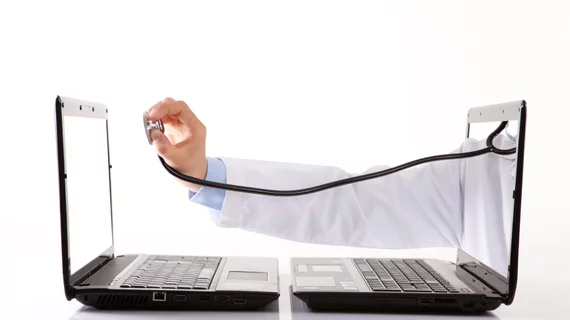Microsoft partners with Nuance on ‘ambient clinical intelligence’ for telehealth
Providers seeing patients remotely via Microsoft Teams make up the target market for a Nuance voice-recognition offering that automatically takes clinical notes during virtual visits and renders them useful immediately afterward.
In a Sept. 15 joint announcement, the companies position the integration of Nuance’s DAX (for Dragon Ambient eXperience) into Teams as a way to better serve both patients and clinicians.
The system counters physician burnout by cutting administrative burden and increasing efficiency while improving patient throughput, the companies claim.
AI enters the picture in the form of “ambient clinical intelligence” (ACI), which converts the conversation into structured clinical notes and sends them for quality review before loading them into the EHR.
A promotional video embedded in the announcement shows a physician speaking a command for a third party while his patient looks on. “Hey Dragon,” the doctor says, “order the medications as mentioned and send them to the pharmacy.”
On the patient service side, the system makes sure the provider doesn’t misunderstand, forget or otherwise fumble clinically relevant comments.
Diana Nole, Nuance’s executive VP and general manager of healthcare for Nuance, says the broad expansion of telehealth during the COVID crisis has opened an opportunity to “transform healthcare experiences and define what healthcare providers and consumers should expect from advanced digital health solutions.”

